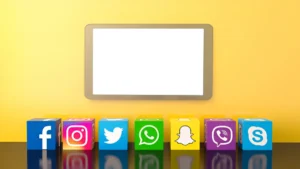Have you ever felt like you’re always just one step behind in life? That’s exactly what playing catch up means in a nutshell, and I’ve been there too – racing to close a gap, fixing my to-do list, and reshaping my business strategy when needed. Some days I’m pushing hard during a tough sports game, other days I simply use this phrase to laugh off setbacks casually across everyday moments. We often act without even realizing the full weight it carries, yet it’s packed with quiet lessons in resilience, unspoken hidden pressure, and unexpected surprise opportunity for growth.
This article aims to dive deep into the real roots behind why this idea of catching up resonates so strongly in American English. Learning how you can avoid that endless loop and handle it smartly can really change daily routine. I always remind myself to be ready, stay calm, and explore smarter ways to tackle tasks. Let’s get started and keep finding real balance instead of always chasing it.
Understanding the Idiom “Playing Catch Up”
“Playing catch up” literally refers to chasing someone or something you’ve fallen behind. Idiomatically, it signals you’re working to level the field: catching up on work, news, or trends.
What it means in plain terms:
- You missed something important
- You’re making a focused effort to close that gap
- There’s an implied urgency, a sense of “wrap it up fast”
Common sentence structures:
- I’m playing catch up on emails.
- She played catch up with her assignments all night.
- He’s still playing catch up after the merger.
Notice how “playing” softens it, implying an active effort – not just a passive lag.
The Origins of “Playing Catch Up”
The idiom traces back to the 1950s–60s in American English. It blends the literal “catch up” – chasing someone who’s ahead – with the casual tone of sports metaphors. Think of a baseball catcher sprinting behind the runner.
Historical path:
| Decade | Context | Example Usage |
| 1950s | Sports jargon | “He caught up with the base round!” |
| 1960s | Workplace lingo | “We’re playing catch up on production.” |
| 1970s–90s | Corporate speak | Becomes part of meeting jargon |
Over time it shifted from athletic fields to boardrooms and daily chats. Today, you’ll hear it on sports broadcasts and corporate meetings alike.
The Phrase in American English: Cultural Relevance
In the US, “playing catch up” implies urgency and energy. It shows commitment.
In formal settings:
- Kept within emails like: “We’re playing catch up on the Q2 report.”
- Acceptable in boardrooms, though upfront phrasing like “closing the gap” sounds more polished.
Casual speech:
- Commonly used at home or between peers: “I’m still playing catch up after vacation.”
Regional twist: In some Southern US regions, you might hear:
“I’m catching up from yesterday.” Same meaning, different phrasing – more direct.
Non-native speakers sometimes hesitate, but the idiom conveys active effort – so it’s worth using once you grasp its tone.
Literal vs Figurative Use of “Playing Catch Up”
Literal Usage
Describes actual movement, like a student sprinting to catch up with classmates or a jogger chasing someone ahead.
Figurative Usage
By far the more common one. You might:
- Catch up on sleep
- Heal after burnout
- Play catch up on industry news
Here are a few examples:
- Literal: The jogger played catch up with the group.
- Figurative: I’m playing catch up on missed deadlines.
The figurative version can suggest motivation – but it can also hint at stress if used too frequently.
Playing Catch Up in Sports and Athletics
In sports, the phrase is metaphorical but grounded in real action. A team trailing by halftime might rally to close the gap.
Famous examples:
- In the 2004 Boston Red Sox comeback, analysts said they were playing catch up after falling behind the Yankees.
- In the NBA, announcers often describe a team as “playing catch up” when they make a late-game push.
Sports psychology adds depth: pressure can both energize and paralyze. Coaches often say:
“We need to play catch up, not play scared.”
It reflects urgency paired with intentional effort.
Playing Catch Up in Competitive Contexts
In Business
When a company lags behind market leaders, they “play catch up” through innovation or acquisitions.
Case Study:
- Netflix vs. Blockbuster: Netflix played catch up by offering streaming when Blockbuster stuck with physical rentals.
- Today, fast followers like Microsoft and Samsung often push to rival Apple after seeing its product success.
In Economics
Countries sometimes play catch up by investing heavily in infrastructure or education – closing development gaps over decades.
In Academics
A student returning from sick leave may need to play catch up in classes – and understanding the pressure involved matters.
The Business of Catching Up: Strategic Implications
Corporate speak loves the term. Here’s what it reveals:
Jargon alert:
- We’re playing catch up on cybersecurity.
- Trying to catch up with industry standards.
In high-stakes fields like tech:
- Companies accelerate R&D to play catch up.
- That urgency drives budgets, risk-taking, and hiring.
Table: Fast Follower vs Innovator
| Strategy | Pros | Cons |
| Fast Follower | Lower risk, industry-tested ideas | Risk of falling into follower trap |
| Innovator | Potential market leadership, high margins | High investment, risk of failure |
So playing catch up can work – but it can also trap you in reactive mode.
Everyday Situations of “Playing Catch Up”
We use the phrase in daily life more than we think:
- Parenting: “I’m playing catch up on laundry.”
- Social life: “I need to play catch up on texts.”
- Academics: “She played catch up after missing spring break.”
- Health: “He’s playing catch up on sleep after the trip.”
It’s useful – but can normalize a reactive lifestyle. When you hear yourself say it often, it may be a cue to reassess habits.
Common Examples & Sentences Using “Playing Catch Up”
Here are practical examples split by tone:
Everyday:
“I’m still playing catch up on my inbox.”
Professional:
“We’re playing catch up to meet the new product deadline.”
Conversational:
“Sorry I’m late – spent all morning playing catch up on errands.”
Table: Effective vs Awkward Usage
| Context | Good Use | Awkward Use |
| “Playing catch up on deliverables.” | “OMG, I’m catching up on like 100 things.” | |
| Meeting | “We need to play catch up strategically.” | “We’re playing catch up and it’s chaos!” |
| Friend chat | “Just playing catch up on chores.” | “Playing catch up and totally overwhelmed.” |
Psychological Impact & Productivity Traps
Playing catch up can boost motivation – or drain you with burnout.
Common traps:
- Feeling “behind” all the time
- Responding to every trend, losing focus
- Guilt when something piles up
Solutions:
- Prioritize what truly matters (Eisenhower matrix-style)
- Build buffers in your schedule
- Reframe: “I’m making progress – not playing catch up.”
Conclusion
Feeling behind is human. But you don’t have to always play catch up. Sometimes slow, steady progress is stronger than a frantic sprint. When you understand the phrase’s full meaning and use it intentionally, “playing catch up” can mark resilience – not defeat.
FAQs
What does “playing catch up” mean in simple terms?
It means working to close a gap – whether in tasks, knowledge, or outcomes. It implies active effort to reach someone or something.
Is “playing catch up” appropriate in professional settings?
Yes, especially to describe in-progress efforts. It shows awareness and initiative. For high-priority projects, pairing it with a clear plan boosts credibility.
Can “playing catch up” be positive?
Absolutely. It shows drive, adaptability, and resilience – especially when you make informed efforts to succeed.
How do you use “playing catch up” in a sentence?
Try: “After vacation, I’m playing catch up on emails and reports.” It’s relatable and easy to understand.
What’s the difference between “playing catch up” and “falling behind”?
“Falling behind” highlights the problem. “Playing catch up” emphasizes the action taken to solve it.











